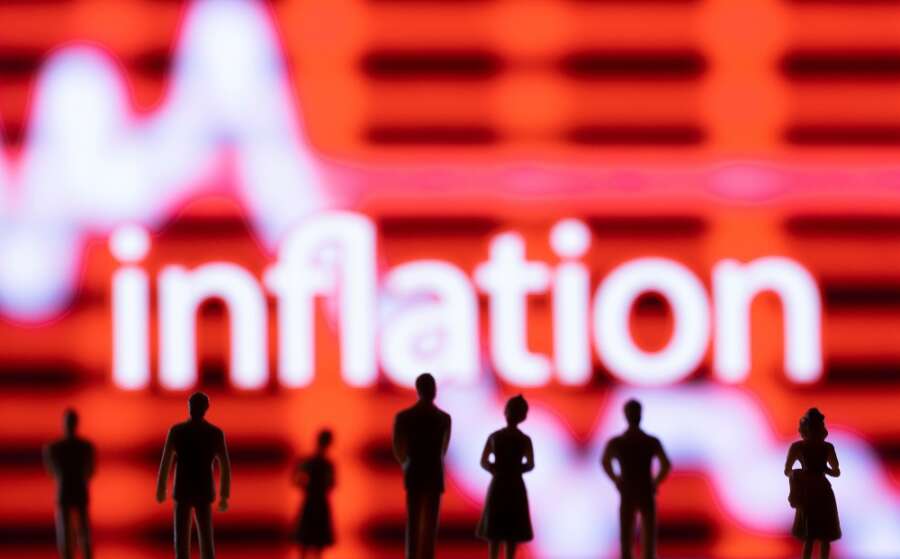(Reuters) – Pandemic-related disruptions to global supply chains and the knock-on effects of Russia’s war in Ukraine have combined to drive up prices of energy, commodities and basic necessities.
Below is a list of some of the actions taken by governments aimed at offering relief to hard-hit consumers and companies:
AMERICAS:
* U.S. President Joe Biden in September urged companies running gas stations, banks, and cell phone services to lower consumer costs. The government has also offered debt relief to former students and unveiled the $430 billion “Inflation Reduction Act”.
* Mexico reached a deal with foodmakers and retailers to waive some regulatory requirements to halt rising food prices. The president also said the size of a planned minimum wage hike in 2023 would depend on inflation.
* Brazil’s oil giant Petrobras has cut fuel prices multiple times this year. In July, the government slashed fuel taxes and raised welfare payments.
* Canada announced a C$4.5 billion ($3.31 billion) relief package in September.
* Chile in July announced a $1.2 billion aid plan.
EUROPE:
* European Commission President Ursula von der Leyen will impress upon EU leaders the need for a gas price cap, adding to emergency levies on energy firms’ windfall profits agreed in September.
* France expects a new clawback on power companies’ revenues to generate up to 7 billion euros ($6.94 billion) to help struggling firms. The government is fully nationalising nuclear energy group EDF and will cap household power and gas price increases at 15% next year.
* Germany set out a 200-billion-euro “defensive shield” including a gas price break and is renationalising gas importer Uniper.
* Ireland dipped into one of Europe’s few budget surpluses to fund spending hikes and tax cuts, and ease energy costs.
* Hungary is likely to maintain a partial cap on household energy bills next year.
* Denmark in September agreed on a package worth 5.05 billion Danish crowns ($6.67 million), adding to previous measures.
* Britain will cap wholesale electricity and gas costs for businesses at less than half the market rate, as well as offering help to households.
* Greece will pay out a further 1.1 billion euros in power bill subsidies in October.
* Norway will spend 3 billion Norwegian crowns ($283.64 million) in loans and subsidies to businesses, and is supporting households with electricity bills.
* Italy in September approved a package worth some 14 billion euros.
* Poland will spend more than 30 billion zlotys ($6.18 billion) to freeze power prices, and raise the minimum wage twice next year.
* The Czech Republic will cap electricity and gas prices next year.
* Portugal cut VAT on electricity.
* Spain slashed VAT on gas from October.
Don't miss out on any breaking news or insightful opinions!
Subscribe to our free newsletter and stay updated on the go!
By submitting this form, you are consenting to receive marketing emails from: Global Banking & Finance Review. You can revoke your consent to receive emails at any time by using the SafeUnsubscribe® link, found at the bottom of every email.
* Croatia capped electricity prices from Oct. 1 until March.
* Finland and Sweden offered liquidity guarantees to power companies.
ASIA:
* Japan will pull together another package by end-October, including directly easing rising electricity prices, Prime Minister Fumio Kishida said. The announcement adds to a record minimum wage hike and a $103 billion relief bill unveiled in April.
* Vietnam plans to cut the special consumption tax and VAT on fuels.
* Thailand on Sept. 13 extended a diesel tax cut and energy subsidies and raised the minimum wage.
* India on Sept. 8 restricted exports of rice to boost supply and calm local prices.
* Indonesia’s government on Sept.14 ordered regional heads to keep food inflation below 5%.
* Malaysia expects to spend a record 77.3 billion ringgit ($16.70 billion) in aid this year.
AFRICA AND MIDDLE EAST:
* South Africa cut the petrol pump price from Oct. 5, adding to a previous cut announced in July.
* Algeria will subsidize fertilizer prices by 50%, Ennahar TV reported.
* Tunisia’s government on Sept. 15 signed a deal with a major labour union to raise public sector pay and the minimum wage.
* Botswana in July cut VAT by 2% for six months.
* Turkey in July raised its minimum wage by about 30%, adding to the 50% rise seen at the end of last year.
* Saudi Arabia and the United Arab Emirates in July raised social welfare spending.
($1 = 1.3592 Canadian dollars)
($1 = 1.0084 euros)
($1 = 7.4993 Danish crowns)
($1 = 10.5769 Norwegian crowns)
($1 = 4.8508 zlotys)
($1 = 4.6290 ringgit)
(Compiled by Olivier Sorgho; Editing by Kirsten Donovan)






